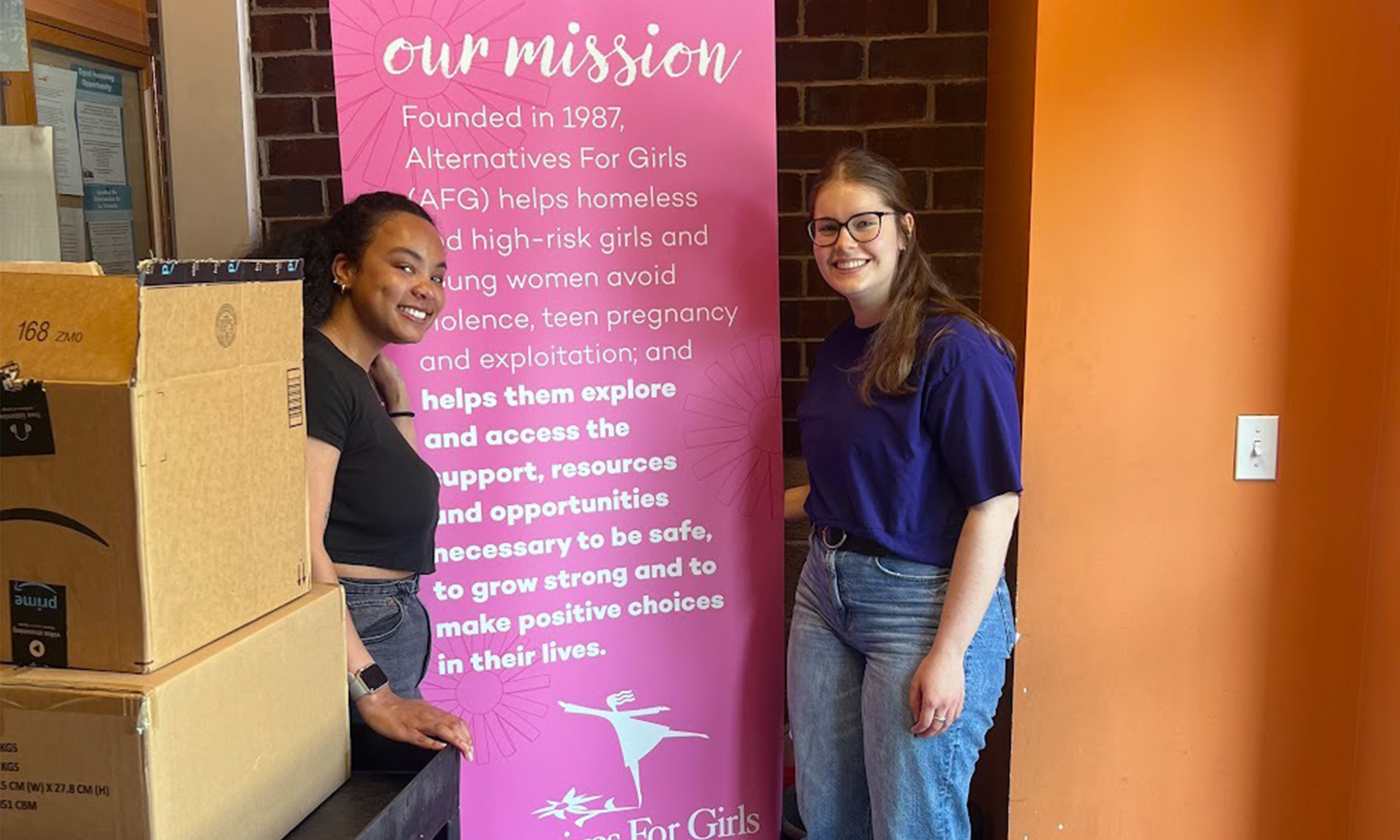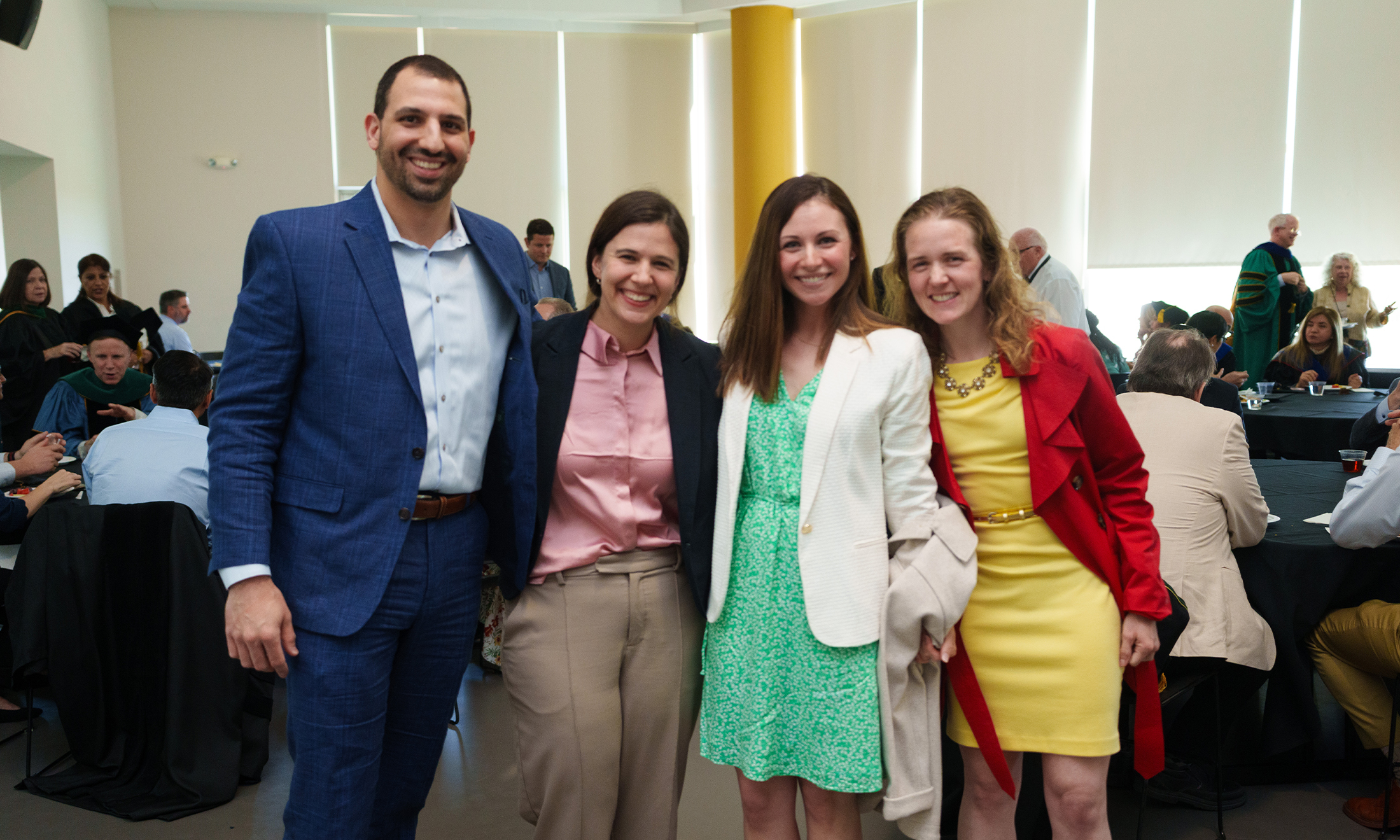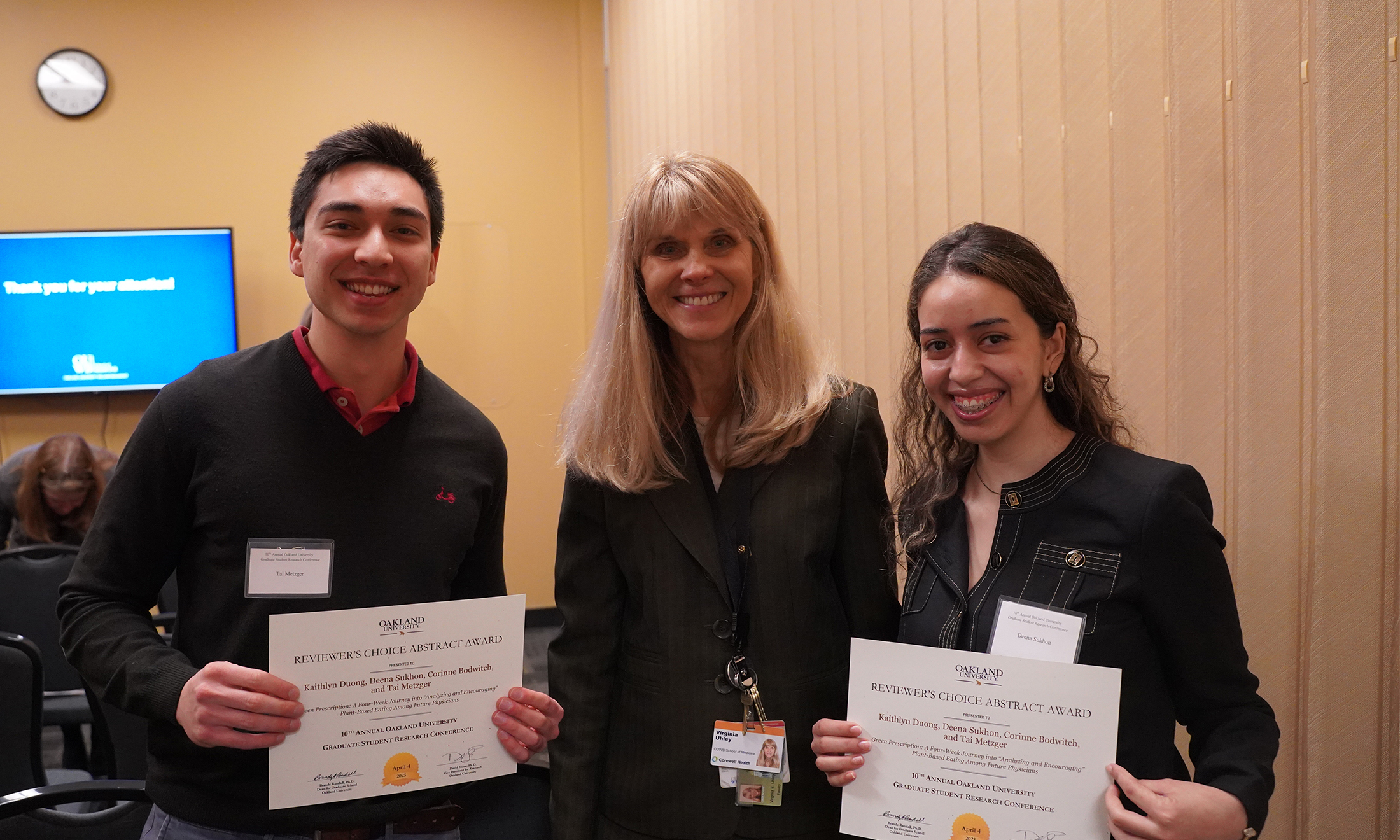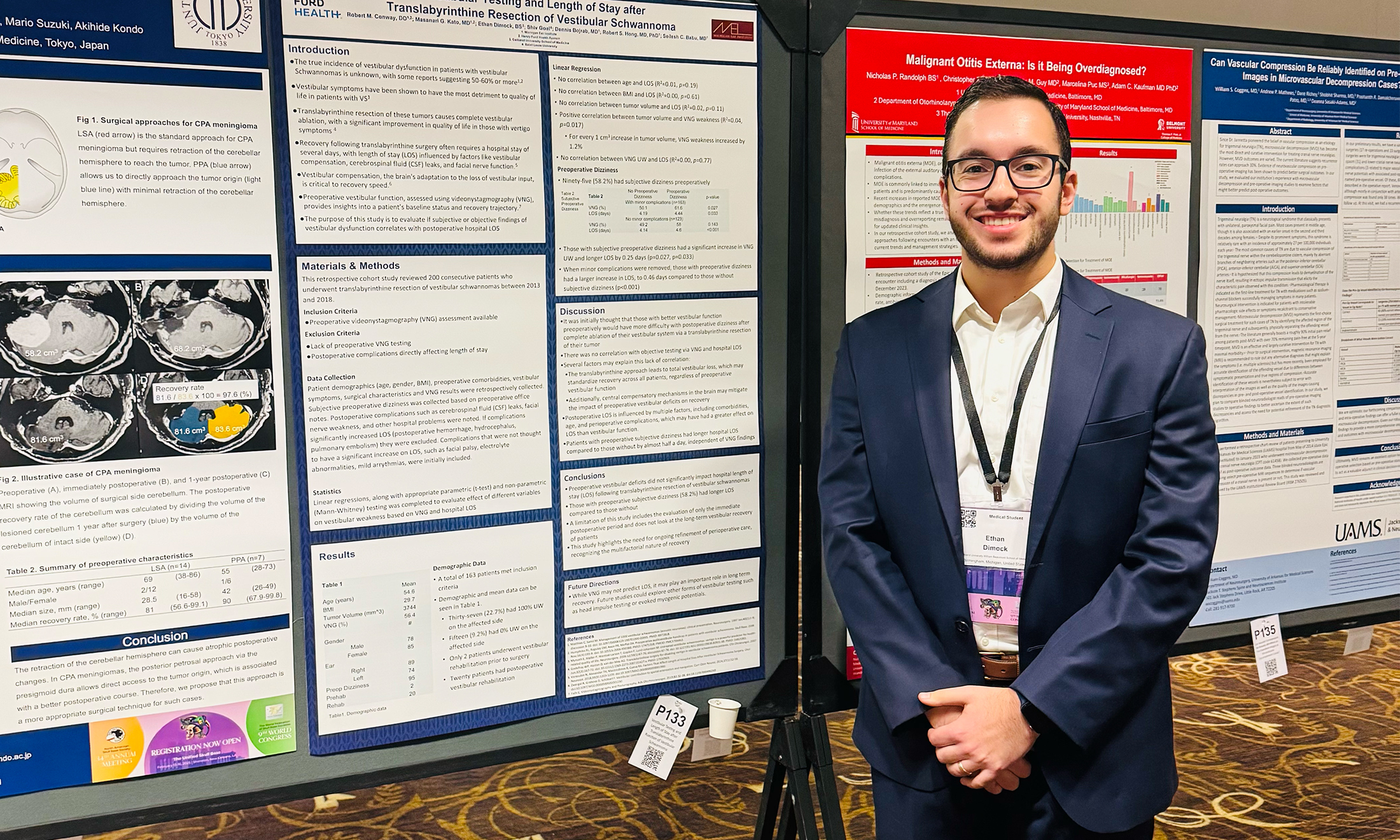‘Amplify humanity’
Harm Reduction Alliance at OUWB is a student organization with big goals
A newer student organization at OUWB aims to “amplify humanity” by not only increasing awareness of substance use disorder in the community but also doing something about it.
According to the organization’s constitution, the Harm Reduction Alliance (HRA) “aims to increase awareness, education and open discussion regarding issues of addiction and drug use and to support those within the medical community who are working to provide harm reduction services.”
Specifically, HRA aims to establish relationships with community health centers throughout metro Detroit to educate OUWB students and the community about drug use as a public health issue along with ways to effectively create change through public policy.
The idea is that bringing awareness to drug use as a complex social issue associated with various social determinants of health can help lead the way to more integrated personalized medicine.
“Broadly, harm reduction is any intervention that can reduce harm associated with a high-risk activity,” said Claire Kopachik, rising M3, president, HRA, for 2023-24.
“It was founded out of the respect for the rights of people who use drugs, regardless of their desire to quit, and offers practical strategies for individuals to protect themselves from infection, overdose, and other risks associated with substance use.”
Jason Wasserman, Ph.D., professor, Department of Foundational Medical Studies, serves as HRA faculty advisor.
“It's easy to look at those folks and make judgments about them, and even think that the things that befall on them are what they deserve,” said Wasserman. “Harm reduction forces us to ask what it means to care for other citizens in our society. It amplifies your humanity.”
‘On-the-job training’
HRA was founded in 2021 after its co-founders volunteered in syringe services and saw how much substance use was in the local community. They decided to partner with Oakland County Health Department to help promote harm reduction in the area.
HRA already has hosted many events, including panels for students about harm reduction, Narcan training, and has taken advantage of other opportunities to create awareness and educate at events such as the OUWB Annual Martin Luther King Jr. Health Fair held at Chandler Park Academy High School in Harper Woods.
HRA also works closely with the Oakland County Health Department Harm Reduction Clinic in Pontiac, which is part of the Oakland County Harm Reduction & Syringe Services program.
At the Harm Reduction Clinic, clients can participate in needle exchange programs, receive Narcan and hygiene kits, have access to screening tests, and connect with other local resources.
Since November 2022, HRA members from OUWB have volunteered more than 592 hours total at the clinic.
It’s the kind of experience that helps students build empathy and communication with those in vulnerable populations — an especially important factor since those clients could be future patients.
“We want socially informed, concerned, and active future physicians. We want them to be engaged in their communities and be forces of humanism,” said Wasserman.
The partnership also allows students to build experience outside of the classroom.
“When patients come into a clinic and our medical students see them in the clinical context, they're blinded to all the social factors in the community that they live with every day,” said Wasserman. “It's powerful to take a medical student and put them in the community so that they can witness what is happening there.”
Scott Chino, a nurse at the Harm Reduction Clinic, called it “on-the-job training.”
“I always try to engage the students with the clients because our clients have real stories,” he said. “It's important for those in medical professions to sit face-to-face with somebody, which a lot of times, can have a dramatic situation going on in.”
“The students are good,” said Sylvia Mitchell, social worker, CPRM, and Peer Recovery Coach at the Harm Reduction Clinic. “We get to learn a lot from them, and the students get to grow and learn from the clients.”
‘We might not even know’
Looking ahead, HRA members said they want to continue building a relationship with OU’s Graham Health Center, other student orgs, and the community to educate everyone about harm reduction.
They also want to keep growing and learning as future medical professionals.
“Being part of HRA made me comfortable talking about (substance abuse disorder) and that clients are supported,” said Connie Chen, an HRA M3 representative for 2023-24. “It's important to realize when people come for help, especially people with substance use disorder, it's such a small window of opportunity. Being prepared with harm reduction benefits patients because you come off as understanding and empathetic.”
Overall, Kopachik said it’s all about empowering people to make the healthiest choices.
“It's an underserved population,” she said. “We might have friends or family that are dealing with this, and we might not even know.”
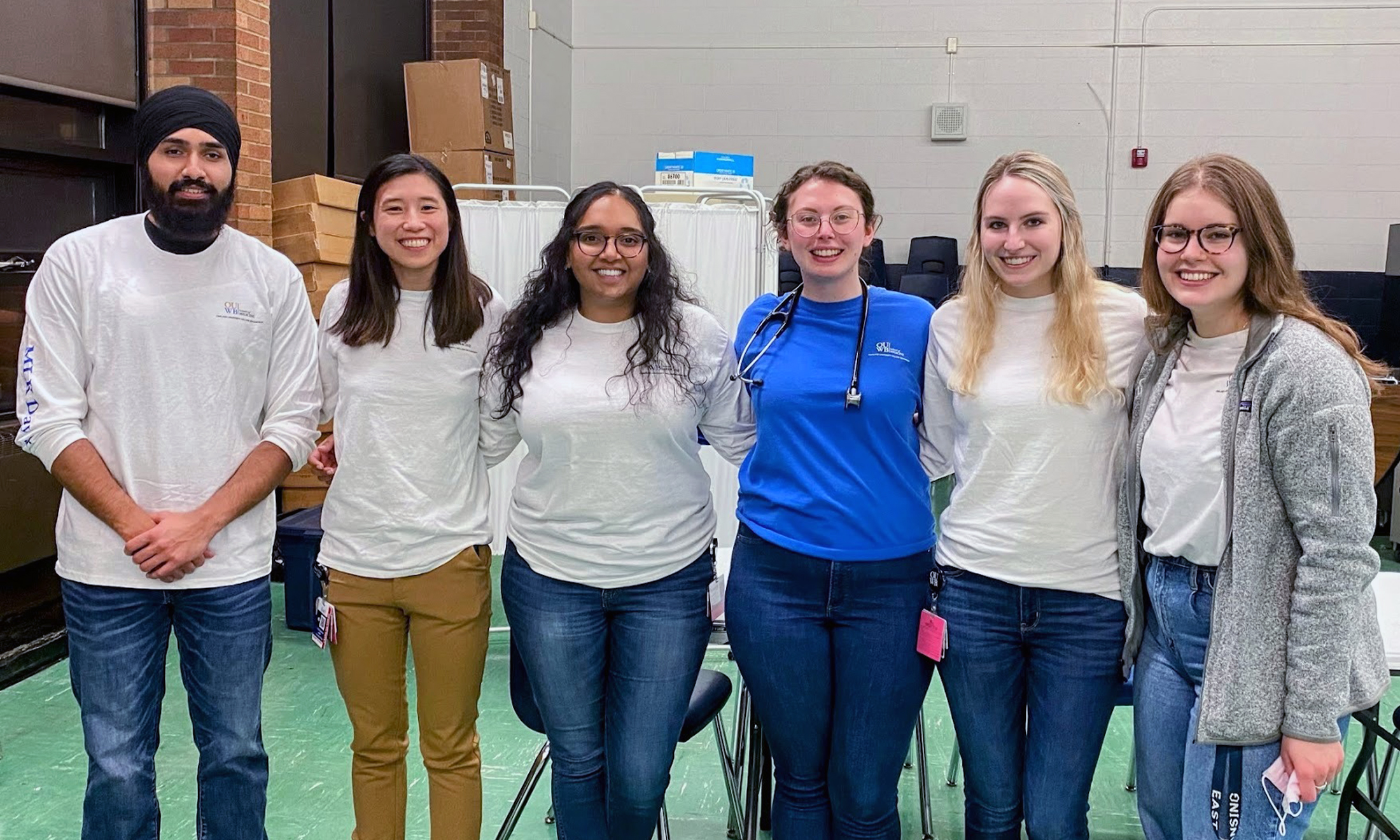
 August 07, 2024
August 07, 2024
 By Emma Kaput
By Emma Kaput